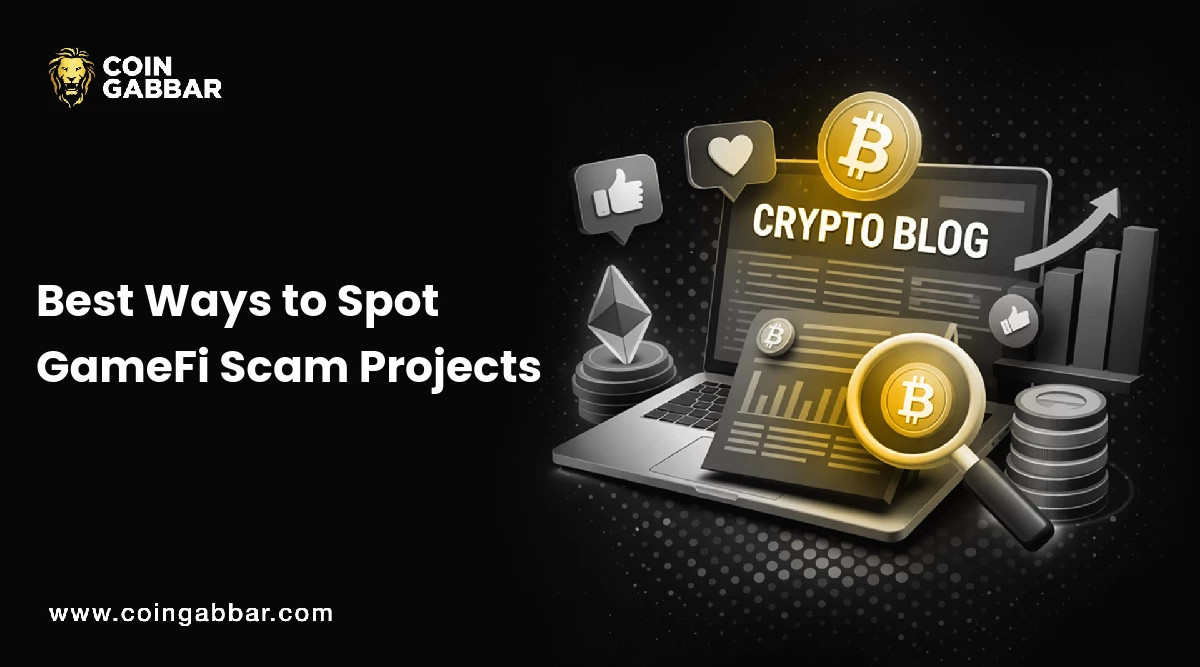
As the popularity of cryptocurrency grows, more and more scam artists are popping up, trying to take advantage of unsuspecting investors. So, how can you tell a scam from a legitimate investment opportunity?
GameFi is one of the latest victims of scams in the crypto world. It is a new blockchain-based gaming platform that will revolutionize the industry. In simple words, GameFi is when the metaverse meets DeFi; users are rewarded according to their gameplay, time spent in the game, levels completed, etc. But GameFi has been a victim of several scams where many pump-and-dump projects market themselves as GameFi or NFT projects; convince retailers to buy them and dump their developer tokens on them.
But is it really all it's cracked up to be? Let's take a closer look at GameFi and see how you can tell if it's a scam.
When it comes to spotting a scam, there are some red flags that are always worth looking out for. Here are some of the biggest ones:
-The offer is too good to be true; their roadmap will be terrible; staking APR will be way good to actually work; basically everything that goes against the general concepts and understandings of economics.
-The company is not registered or authorized to offer financial services; this is something very important since this is a good way to call out a scam.
-The person or company contacting you is pressuring you to invest or sign up right away; no one legit will talk to you on telegram to give your money to an unknown platform.
-The website looks unprofessional or is full of typos; these guys do not care much about their website or whitepaper.
-There are no contact details provided and the provided contact details are either very new accounts or suspicious.
When it comes to crypto, it's important to be aware of the many scams out there. After all, criminals are always looking for new ways to take advantage of unsuspecting investors.
One common scam in the world of GameFi is phishing. This is when criminals send you a message or email that looks like it's from a legitimate source—but it's not. The goal is to get you to click on a link or provide your personal information.
Another common scam is called "pump and dump." In this scheme, criminals artificially inflate the price of a coin by buying up a lot of shares and then selling them all at once. This creates the illusion of heightened demand, which lures more investors. And when the price inevitably drops, the criminals walk away with a profit.
It's important to be vigilant when investing in GameFi—or any other form of crypto, for that matter. Stay informed about the latest scams and protect yourself from being taken advantage of.
When you're looking to invest in a new cryptocurrency, it's important to do your research first. Don't just take someone's word for it—look into the team behind the coin, read up on the technology, and see what others are saying.
There are a lot of scams out there, and it's easy to get taken in if you're not careful. So do your due diligence and make sure you're putting your money into a coin that has a solid foundation and a good chance of success.
The best way to protect yourself from scams is to do your research. That means reading up on the latest news in the crypto world and staying up-to-date on the latest developments in the industry.
It also means being careful about who you take advice from. If someone you don't know and trust tells you to buy a certain coin, be very wary. The same goes for anyone who tries to sell you something without giving you all the information you need to make an informed decision.
Last but not least, always remember that if something sounds too good to be true, it probably is. If someone promises you guaranteed returns or tells you they have inside information about a coin that's about to explode in value, beware. These are just a few of the many ways people have been scammed in the past, so it's always better to be safe than sorry.
Another huge red flag to watch out for is the so-called "pump and dump" schemes. Here's how they work: A group of people get together and buy a bunch of low-volume coins, then they start pumping it up on social media and message boards, telling everyone it's the next big thing.
What happens next is that a bunch of other people jump on the bandwagon and buy the coin too, driving up the price. And then, when the price is high enough, the original group dumps their coins and walks away with a profit, leaving everyone else holding the bag.
These types of scams are unfortunately all too common in the world of cryptocurrency, so it's important to be on the lookout for them. If you see a coin that's being heavily promoted by a group of people, be wary – it could be a pump-and-dump scheme.
If you are in the crypto market for at least a year, you might know how much FOMO there was going on for the same; this interestingly gave rise to several projects that went to the moon before even their phase 1 was released; turns out many of these were scams. This rose a wave of scammers making, imitating, or making new projects and cryptocurrencies and marketing them as legitimate projects.
NFT or Meta projects without any considerable backing are usually red flags when it comes to crypto scams. These projects will try to project themselves as being the "next big thing" in the world of cryptocurrency when in reality, they are nothing more than a Ponzi scheme. When evaluating a project, be sure to do your own research and never invest more than you can afford to lose. Because in the end, this is not a small game of cards you are betting in, this is a long game that might make your life better in so many ways.
So, there you have it. These are the key red flags to look out for when trying to spot a scam in the world of GameFi. Of course, this is not an exhaustive list, but it should give you a good starting point.
If you have any doubts whatsoever about a project, the best course of action is always to do your own research. There are a number of ways to do this, and no one can do it for you. But if you take the time to learn about the space and the projects that are out there, you'll be in a much better position to spot a scam when you see one.

Sudeep Saxena is one of the co-founders of Coin Gabbar. Apart from developing the business, he is also a CMA by profession. Sudeep contributes to #TeamGabbar by writing geopolitical blogs.
Sudeep has an extensive experience in the crypto space and intents to build a rich knowledge bank in the form of blogs and articles, that shall develop a basic understanding of the crypto world for any new entrant in the market. When not writing, he can be found reading books.
You can connect with Sudeep on Twitter and LinkedIn.
8 months ago
As a newbie to cryptocurrency, I lost a lot of money up to $170,000 I would like to express my gratitude to Expert Bernie Doran for their exceptional assistance in recovering my funds from a forex broker. Their expertise and professionalism in navigating the complex process were truly commendable. Through their guidance and relentless efforts, I was able to successfully retrieve my funds of $170,000, providing me with much-needed relief. I highly recommend him on Gmail - Berniedoransignals@ gmail. com , to anyone facing similar challenges, as their dedication and commitment to helping clients are truly impressive. Thank you, Bernie doran, for your invaluable support in resolving this matter.

10 months ago
Decentralized finance trends

2 years ago
THE COMMUNITY TEAM HIGHLY RECOMMENDS AND VERIFIED MRS KAREN TOMPSOM AS THE ONLY PROFESSIONAL TRADER TO AID YOU IN ALL TRADING RELATED ISSUES,,WRITE TO HER ON INST💹AG*RAM@{KARENTOMPSOM}

2 years ago
pretty cool

2 years ago
nice projects
